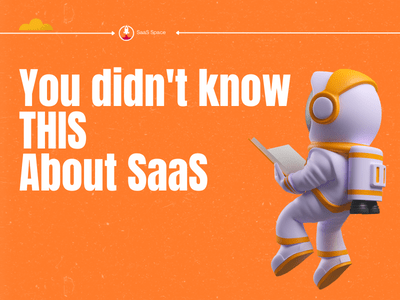Securing funding is a crucial step for SaaS businesses, especially in their early growth phases. With rapid development cycles and a need for constant innovation, these companies often turn to venture capital, private equity, or institutional loans to scale their operations. For many founders, this process involves agreeing to director’s personal guarantees, a legal commitment that carries significant risk. If you’re navigating these waters and are concerned about potential liabilities, speak to a solicitor experienced in directors personal guarantee.
In this article, we unpack the role of personal guarantees in SaaS financing, what they mean for directors, and how to mitigate legal exposure when seeking external funding.

What Is a Director’s Personal Guarantee?
A director’s personal guarantee is a lawful agreement, where a company director assumes a personal responsibility regarding the payment of a company debt, in a situation where the business cannot meet its obligations. While lenders see this as a safeguard, for directors, it can mean personal financial exposure, including the risk to personal assets.
SaaS companies, which often operate with negative cash flow in their early years, may struggle to secure financing without such guarantees. However, directors must fully understand what they are signing, as guarantees are enforceable even if the company goes into administration or liquidation.
To explore the broader implications of business borrowing, the British Business Bank offers resources on finance options and potential liabilities.
Why SaaS Businesses Are High-Risk for Lenders
From a lender’s perspective, SaaS businesses carry unique risks:
• Subscription Revenue Dependence: These companies often rely on monthly recurring revenue, which can fluctuate.
• Front-Loaded Investment: High upfront development and marketing costs delay profitability.
• Customer Churn: A fluctuating client base makes long-term income projections uncertain.
Given these uncertainties, traditional lenders may require personal guarantees to reduce their own exposure. Directors, in turn, shoulder the burden of underwriting the company’s financial future with their own assets.
Legal Ramifications for Directors
Personal guarantees are often misunderstood as symbolic gestures or minor clauses, but they carry full legal weight. A lender can personally chase repayment from a director if a SaaS company enters insolvency, which may result in:
• County Court Judgements (CCJs)
• Charges against personal property
• Bankruptcy proceedings
It is crucial that directors seek independent legal advice before signing a personal guarantee. The Institute of Directors (IoD)offers a helpful overview of directors’ responsibilities and liabilities in the UK.
Tips for Managing Personal Guarantee Risk

Directors should take the following precautions to minimise their exposure:
• Negotiate Limits: Request a cap on the total amount you’re guaranteeing.
• Request Time Limits: Limit the duration of the guarantee to a specific loan term.
• Avoid Joint and Several Liability: Where possible, negotiate to avoid shared liability with other directors.
• Obtain Indemnities: Consider indemnity insurance that may cover some liabilities.
Legal agreements should be reviewed regularly to ensure that guarantees are not inadvertently rolled over into new finance terms or renewed loans.
Alternative Funding Options for SaaS Startups
So, one way to avoid personal guarantees altogether is to explore other sources of capital. SaaS founders may consider:
• Revenue-Based Financing: where lenders are paid back relative to a percentage of monthly incomings.
• Equity Investment: Investors receive shares in the company rather than repayment.
• Grants and Innovation Funding: UK-based schemes such as Innovate UK offer non-repayable funding for tech businesses.
Thus, these options may involve other trade-offs, such as loss of equity or slower application processes, but they can relieve directors from personal financial liability.
Red Flags in Loan Agreements
Directors must review funding agreements for clauses that could increase their risk. Watch for:
• Automatic renewals that re-activate dormant guarantees
• Non-recourse clauses that disguise full personal liability
• Cross-guarantee clauses tying the guarantee to other company loans
Ensure a solicitor reviews all terms before signing, particularly if the lender pressures you to sign quickly.
Therefore, for detailed legal definitions and examples, the Law Donut business debt guide provides an accessible starting point for business owners.
What Lenders Expect from SaaS Founders
When SaaS founders approach lenders for funding, they’re often told a personal guarantee is essential. Lenders see these guarantees as a safeguard that proves a director’s commitment and provides a clear route to repayment if the business falters. However, while these demands may seem inflexible, there is often more room for negotiation than many realise.
Additionally, directors should remember that their SaaS business is truly valuable. If your company has stable monthly recurring revenue (MRR), a low churn rate, or a clear path to profitability, these are indicators that may reassure lenders — and reduce their insistence on personal guarantees.
Negotiating the Terms of a Guarantee
Rather than accepting a blanket guarantee, directors can propose tailored terms. Consider negotiating:
• Limited guarantees: Tie the guarantee to a specific loan amount or term.
• Milestone triggers: Propose that the guarantee lapses after a funding round or revenue milestone.
• Caps on liability: Limit your liability to a percentage of the loan or a defined financial value.
You can also offer alternative security, such as a debenture over the business’s assets or a floating charge on intellectual property. These options may satisfy lender concerns without putting your personal finances on the line.
Avoiding “Joint and Several” Liability
If multiple directors are asked to sign on a guarantee, it’s vital to clarify how liability is shared. A “joint and several” guarantee means any one director could be pursued for the entire debt. This is a significant risk, especially if co-founders have unequal equity or influence in the company.
Nonetheless, where possible, negotiate separate or proportionate guarantees that reflect your ownership stake or decision-making role. Have a solicitor carefully review the wording, as small differences in phrasing can greatly affect your financial exposure.
Take Time to Review and Push Back
Don’t allow lenders to rush the signing process. Ask for a copy of the loan agreement and guarantee in advance, and insist on independent legal advice. Clauses that seem standard may contain serious obligations or expose you to enforcement action.
Ultimately, directors who are well-informed and proactive during negotiations are more likely to secure sustainable funding — and less likely to face personal financial fallout if their business hits a rough patch.
When Things Go Wrong: Insolvency and Enforcement
Should your SaaS business enter insolvency, lenders will seek repayment from guarantors. If you are unable to pay, consequences may include:
• Bankruptcy proceedings
• Asset seizure, including jointly-owned property
• Negative credit history impacting future business ventures
The psychological toll can also be significant, with stress, anxiety, and strained personal relationships common among directors facing personal liability. Professional advice from insolvency practitioners and mental health support groups is highly recommended.
Protecting Your Personal Position
If you are entering into any personal guarantee, create a contingency plan:
• List all personal assets and liabilities to understand exposure
• Discuss shared liabilities with co-directors or partners
• Set aside personal savings or insurance as a fallback
Understanding the worst-case scenario empowers you to act with foresight rather than regret. Seek professional advice at every stage, from drafting to enforcement risk planning.
Signing with Confidence, Not Caution

Director guarantees may seem like a necessary evil in the world of SaaS finance, but they are far from benign. By educating yourself on the risks and proactively seeking alternative funding routes or negotiated terms, you can make informed choices that protect both your business and your personal future.
If you’re currently evaluating funding options that involve a director’s personal guarantee, ensure you speak to a solicitor who understands the nuances of SaaS business finance.
Please be advised this article is for informational purposesexclusively and should not be a replacement for legal advice from a trained financial solicitor. Always consult with an appropriate expert before entering into any binding personal agreement.
Moreover, for more interesting articles check out our website.
- Best AI SEO Tools for SEO Automation in 2026 - January 14, 2026
- Top 5 Best AI Presentation Makers in 2026 - December 24, 2025
- Best AI Text Generator Plugin for Woocommerce: WriteText.ai - December 23, 2025


